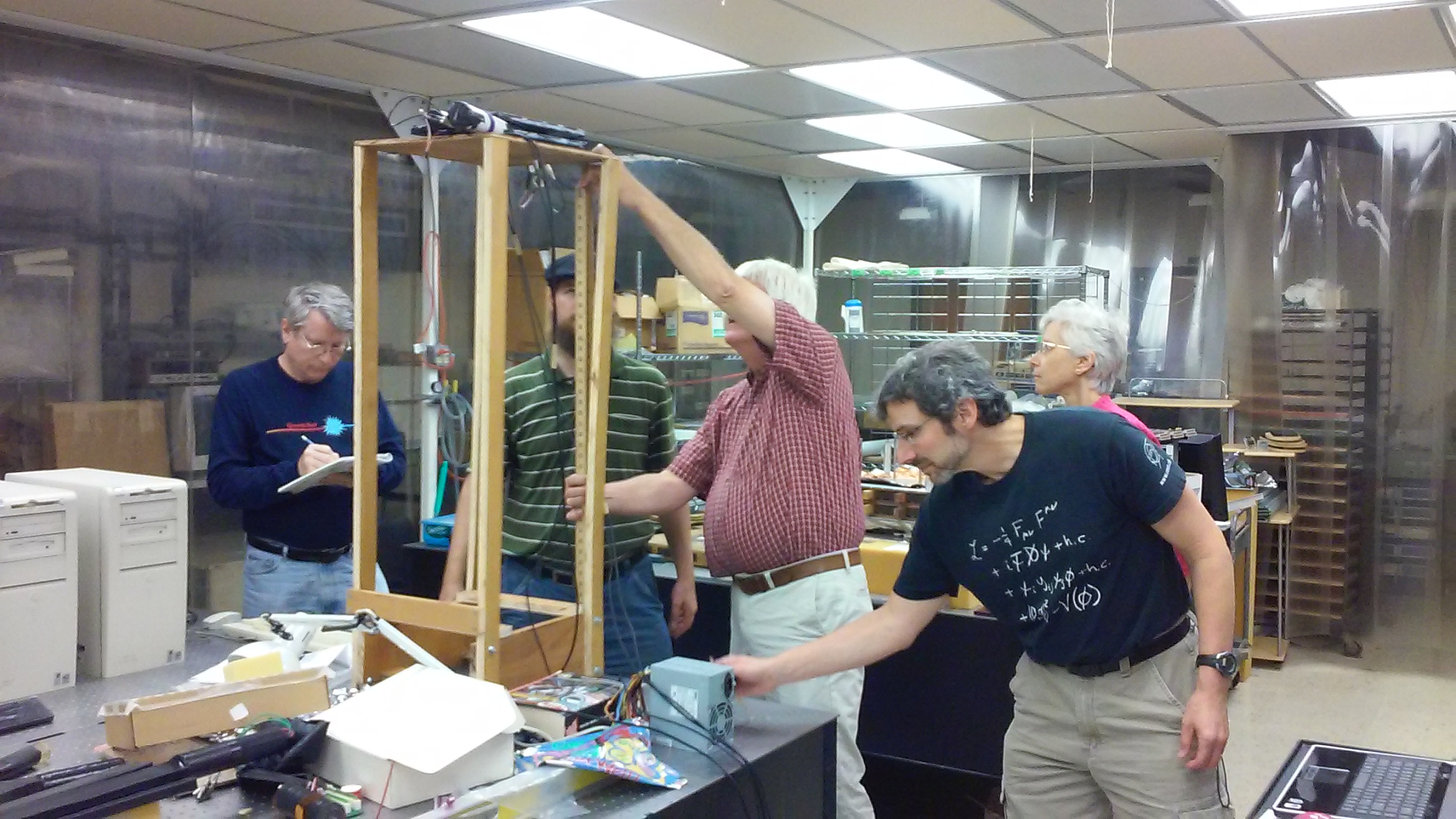
Spotlight on International Muon Week
Next week is Interational Muon Week (IMW)! IMW is organized by QuarkNet and the Cosmic Ray Fellows and takes place in or close to spring each year. Think of it as the longer counterpart to International Cosmic Day (ICD), organized by Netzwerk Teilchenwelt and DESY Zeuthen. IMW has traditionally been a week of taking cosmic ray flux data around the world. Last year, finding the speed of muons was added as an alternative. This year, it is all about time-of-flight between separated counters to find that speed. It is not too late to register; go to the online registration form. You can learn more from the IMW "get ready" flyer. Questions? Contact Mark!


News from QuarkNet Central
We have been recruiting for QuarkNet Data Camp, to be held at Fermilab, July 14-19. Data Camp is the national flagship workshop for QuarkNet, and if you have not gone yet, you should throw your hat in the ring. Data Camp participants are nominated by mentors (1–2 per center), so, if you are interested, let your mentor know. Learn more from the Data Camp flyer.
There is still time–but just a little! The 2019 Beamline for Schools (BL4S) competition at CERN is accepting proposals through this Sunday, March 31.
Yesterday was opening day for baseball, but International Masterclasses (IMCs) 2019 are in the final innings, as pointed out along with some news in the latest IMC circular.

Physics Experiment Roundup
As you may know, the Large Hardon Collider is shut down for upgrades to the experiments. CERN Bulletin describes the ALICE detector upgrade in detail; it is quite extensive. Over at Fermilab, the accelerator system is running like a top and, for muon fans (aren't we all?), g-2 Run II has begun. And, Godot, move over; we're waiting for neutrinos.

Resources
It is not quite DIY, but we do have some how-to's. In symmetry, we learn how to make a discovery. Don Lincoln has a new YouTube video on how to make a neutrino beam. And we have one more video, this time from Fermilab, with physicist Anne Schukraft explaining SBND. Maybe you'll learn how to install a state-of-the-art neutrino detector!
To learn a bunch about the LHC, check out this not-for-beginners talk at Jefferson Lab. Hat tip to Steve Gagnon at the JLab Education Office!

Just for Fun
OK, gamers; thanks to symmetry, you will be able to explain to doubters and critics that Starcraft trains you for the LHC. Sure, you might as well use physics to get out of a hole. Oh, wait; we have that too.
QuarkNet Staff:
Mark Adams: adams@fnal.gov
Ken Cecire: kcecire@nd.edu
Shane Wood: swood5@nd.edu